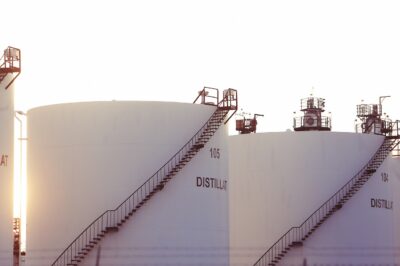The main focus of businesses is the efficiency and sustainability, and the understanding and the optimization of your company’s water storage solutions is the most important thing that is needed today. The industrial, agricultural, hospitality, and healthcare sectors are some of the industries that depend on water very much. Securing a dependable and efficient supply can greatly influence operations, thus, cutting down the expenses and increasing the productivity.
Thus, commercial water tanks become the answer. They are the essential elements of a business’s infrastructure to make sure a continuous, reliable supply is available. A company’s operating efficiency and its effect on the environment can be improved by the investment of the proper water storage system.
1. Ensuring Reliable Water Supply During Peak Demand
Keeping a steady supply for companies with changing demands is a difficult task. They act as a cushion, guaranteeing it is available during the time of the highest demand without overloading the local supply system. This is especially needed in the industries like agriculture, where the irrigation needs are very different and in the manufacturing, it is a must for the different production processes.
Through the accumulation of large quantities of water, these tanks prevent businesses from facing the problems of low-pressure or supply cuts during essential periods. This surety allows for continuously working, thus preventing the downtime and guaranteeing the high productivity levels.
2. Reducing Operational Costs and Enhancing Sustainability
Major cost savings are the most important reasons why a business should consider the integration of such solutions. These tanks can greatly lower the costs by enabling companies to get and store them during the off-peak times when the rates are lower. Besides, businesses that embark on the process of harvesting and storing rainwater can reduce their dependency on municipal water supplies, thereby cutting down on costs and boosting their green credentials.
Besides, with the use of stored water for non-potable purposes like landscaping, cooling, and toilet flushing, businesses can improve their usage and at the same time, they will help the environment to be more sustainable. This method not only cuts down the funds but also meets the global objective of water resource conservation.
3. Improving Water Quality and Safety
They are made with the safety and quality of the users in view. The materials that prevent the growth of algae and bacteria are usually chosen to build these kinds of tanks so they remain clean and safe to use. This is of the highest significance in the field where product quality is directly related to quality like in the food and beverage and pharmaceutical industries.
Besides, these tanks can be fitted with filtration systems to take out the impurities and preserve it to an excellent standard. The precautionary method of treatment helps businesses to escape the expenses and consequences of water-borne problems, thus making sure that the operations and products are of a high quality.
4. Supporting Emergency Preparedness
Besides, they improve the business’s ability to withstand emergencies such as droughts, fires, and other unforeseen events. By having a reserve of resources, companies can carry on with their activities in times of crisis that break the regular supplies.
This emergency preparedness is needed for sectors like healthcare which requires a continuous supply for patient care and cleanliness, or for industries in fire-prone areas where an independent source can be a life saver during fire emergencies.
5. Facilitating Compliance and Regulatory Approval
A lot of businesses run in places where usage is limited because of scarcity of resources or environmental protection. They can make companies obey the rules of these regulations by allowing more exact control of the consumption and supply.
Businesses can employ these tanks to prove their involvement in the sustainable management, usually resulting in the easier regulatory reviews and approvals.
Commercial water tanks are not only functional infrastructure but also strategic assets that can greatly improve a business’ operational efficiency and sustainability. By providing a steady water supply, reducing operational costs, improving water quality, helping in emergency preparedness, or assisting in the compliance with the rules and regulations, these tanks are the key for the companies in the handling of one of the water challenges. With proper investment and management, these systems can help pave the way for a more efficient and sustainable business operation.







Leave a Reply